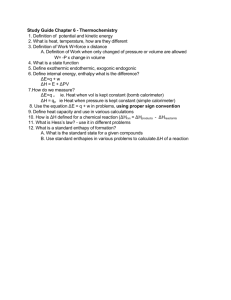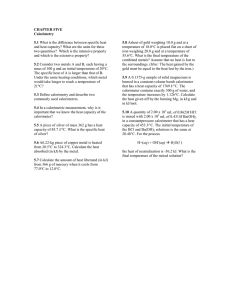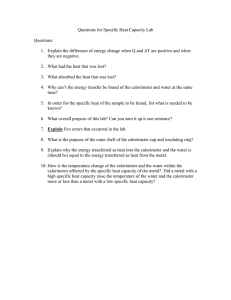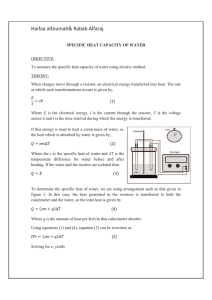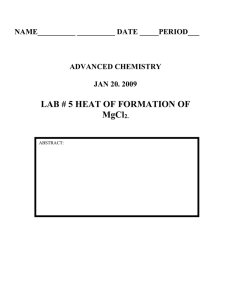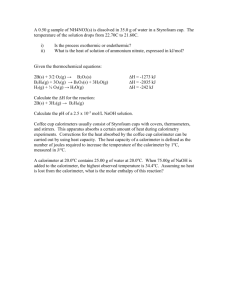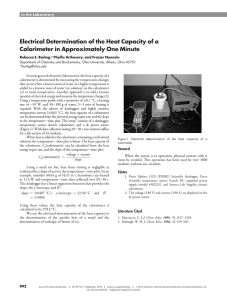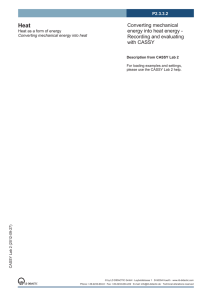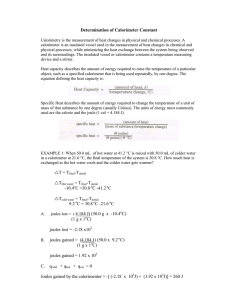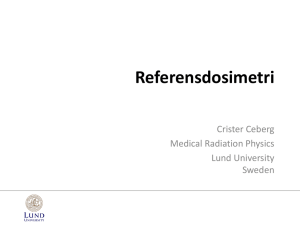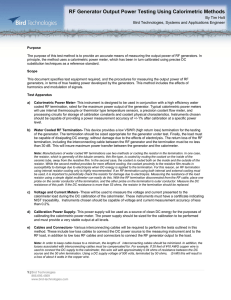Specific Heat & Calorimetry Prelab Assignment Answers
advertisement
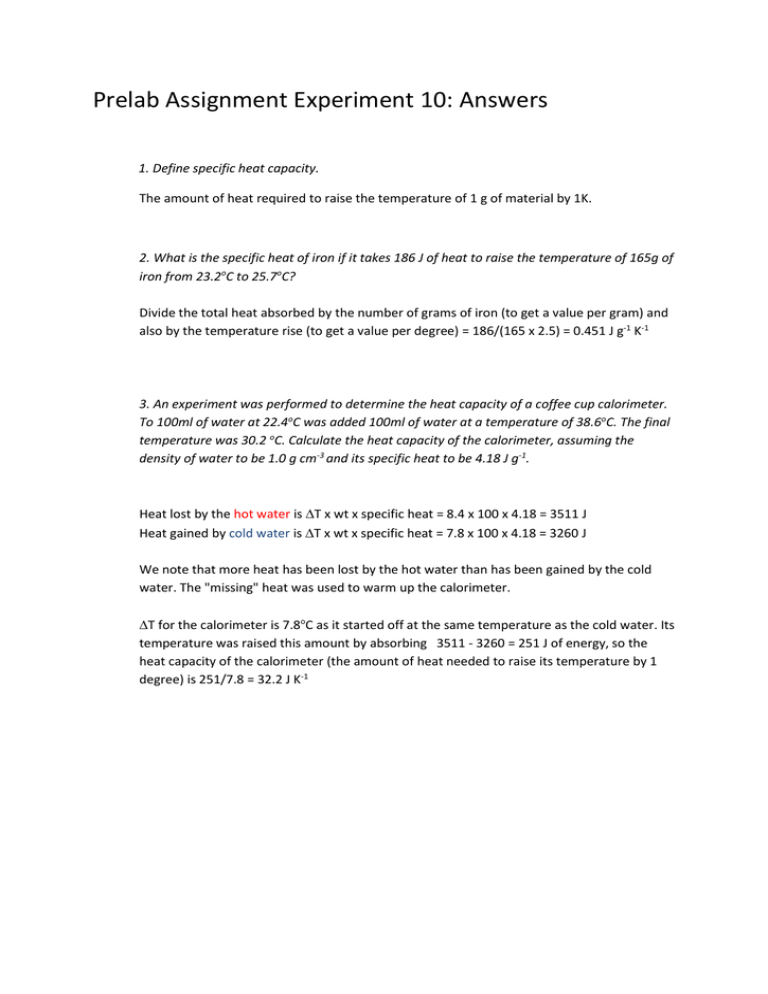
Prelab Assignment Experiment 10: Answers 1. Define specific heat capacity. The amount of heat required to raise the temperature of 1 g of material by 1K. 2. What is the specific heat of iron if it takes 186 J of heat to raise the temperature of 165g of iron from 23.2oC to 25.7oC? Divide the total heat absorbed by the number of grams of iron (to get a value per gram) and also by the temperature rise (to get a value per degree) = 186/(165 x 2.5) = 0.451 J g-1 K-1 3. An experiment was performed to determine the heat capacity of a coffee cup calorimeter. To 100ml of water at 22.4oC was added 100ml of water at a temperature of 38.6oC. The final temperature was 30.2 oC. Calculate the heat capacity of the calorimeter, assuming the density of water to be 1.0 g cm-3 and its specific heat to be 4.18 J g-1. Heat lost by the hot water is T x wt x specific heat = 8.4 x 100 x 4.18 = 3511 J Heat gained by cold water is T x wt x specific heat = 7.8 x 100 x 4.18 = 3260 J We note that more heat has been lost by the hot water than has been gained by the cold water. The "missing" heat was used to warm up the calorimeter. T for the calorimeter is 7.8oC as it started off at the same temperature as the cold water. Its temperature was raised this amount by absorbing 3511 - 3260 = 251 J of energy, so the heat capacity of the calorimeter (the amount of heat needed to raise its temperature by 1 degree) is 251/7.8 = 32.2 J K-1
